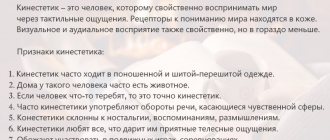- November 5, 2019
- Psychology of thinking
- Alina Pavlova
Today's world is more saturated than ever with distractions. In the frantic pace of life, we rarely have the chance to stop and carefully weigh this or that decision, to make a truly informed choice. How to focus on your own thoughts when there is such an abundance of colors, sounds, tastes around?
However, the problem is not always the environment around us, although its role is really important. Trouble concentrating may be related to other factors. In this article, we will tell you in detail about what affects our ability to concentrate and how to keep our attention on one thing without being distracted by anything else. The methods presented here are perfect for any type of task and will be useful both in work and study, as well as in any form of creativity or hobby.
To begin with, we will tell you about the main factors that may prevent us from focusing on one specific task.
Health status
It's no secret that the quality and duration of night's sleep directly affect our attention. However, not many people know that too much sleep is just as harmful as too little sleep. In both cases, we feel overwhelmed and lethargic, and concentration is out of the question. Each person needs a different number of hours for proper sleep. In general, it should be at least seven hours. Try to monitor your condition, and once you determine what sleep duration is ideal for you personally, stick to it on a regular basis.
Nutrition also plays an important role. You've probably noticed how difficult it is to concentrate when we overeat or, on the contrary, feel hungry. Both have a negative impact on the health of the body, which, in turn, has a detrimental effect on the brain. Not only attention begins to suffer, but also memory. Try to diversify your diet as much as possible, consuming enough protein, fiber, and carbohydrates every day. Don't avoid sweets, but reduce your consumption if possible.
And finally, stress. It exhausts all body systems and disrupts their functioning, which also affects sleep and appetite, creating a vicious circle. Chronic stress can lead to much more serious problems, including mental problems. How to concentrate in this case? It is very important not to put off solving your problems and work through them as they arise. Remember that asking for help is not a sign of weakness. It just means that you are a living person.
“Not” together or separately: 7 insidious words that constantly make you make mistakes
Whether to write “no” together or separately is a question that makes your palms sweat, your eyes fill with tears, and your fingers twitch nervously. Let's look at one of the most (un)simple rules of the Russian language.
Read the original text on the website
mel.fm
Correct:
Russian is not easy to learn
“Not at all”, “not at all”, “not at all”, “not yet” - remember these intensifying constructions of negation, which usually appear before nouns, adverbs and adjectives. Because in them “not” is always written separately. If you see these signal words, feel free to press the space between the particle “not” and the following word: “A book not yet read”, “Not a bad decision at all”, “Far from easy”.
Right:
an untested rule
A few more alarm words: if you see a pronoun that begins with the prefix “ni” (“nobody”, “nobody”, “no one”, “not at all”, and so on), the particle “not” will be written separately. “I’m not at all scared”, “No one needs a project”, “No one has tested the rule”.
Right:
he walked slowly down the street
As the organizers of the “Total Dictation” say, this word was mistaken especially often in 2018. In fact, this rule is one of the simplest: “not” with gerunds is written separately (without thinking, without knowing, without resting, without haste). Although at this rate, “slowly” will move from the category of gerunds to the category of adverbs, which, on the contrary, are written together.
There are also exceptions to the rule about participles: we write together if the word is not used without “not” (indignant, perplexed) and in combination with the prefix “nedo” (underestimating, lacking sleep). Plus a special case with the gerund/preposition “(in)despite” - read more about it here.
Right:
all the rules have not yet been learned
Let's be brief: “not” with short participles is written in the same way as with verbs and gerunds - that is, in most cases separately.
Right:
the steak was undercooked
Different people like different degrees of doneness, and we simply increase the level of complexity by turning to participles (with them, which is not the rule, it is difficult). “Not” with full participles is written together if there is no opposition or explanatory word. There is nothing like it here.
Right:
A student who failed to submit his homework on time received a bad grade.
In general, sacraments are not as scary as they seem. The particle “not” is written separately with participles also in this case: if there are dependent words in the sentence. The main thing is to identify them correctly: if you don’t have time, what should you do? - hand in your homework.
Right:
that's all we needed
“Not” is written separately with verbs - everyone knows this (right?). “Lack” in the sense of “to be in insufficient quantity” is an exception verb and is written together. And you can test yourself again in the test “Do you know how to write “not” with different parts of speech.” Be careful: it will be difficult.
Source of the article: https://zen.yandex.ru/media/melfm/ne-slitno-ili-razdelno-7-kovarnyh-slov-kotorye-postoianno-zastavliaiut-vas-oshibatsia-5f10118b5d609542260ce1ba
Multitasking
As amazing as the human brain may seem to us, even it has its limitations. Multitasking is almost as harmful a factor as poor sleep and unsystematic eating. In this regard, our brain is very similar to a computer: it begins to freeze if there are many “programs” or tasks running. In other words, the more we plan to do in one time period, the more difficult it is for us to focus on completing one single, or even the main task. Consequently, its quality will suffer, which will only add to our own uncertainty. How to concentrate if you have a lot to do? We'll talk about this a little later.
Distracting how to spell
The correct spelling is “distracting”
.
Spellings of other forms of the word “distract”: distract, distract, distract, distract, distract, distract, distract, distract, distract, distract, distract, distract, distract, distract, distract, distract, distract, distract, distract, distract, distract, distracting, distracting, distracting, distracting, distracting, distracting, distracting, distracting, distracting, distracting, distracting, distracting, distracting, distracting, distracting, distracting, distracting, distracting, distracting, distracting, distracting, distracting, distracting, distracting, distracting, distractable, distractable, distractible, distractible, distractible, distractible, distractible, distractible, distractible, distractible, distractible.
In the word mentioned above, the stress should be on the syllable with the letter A - distracted A
Yu.
Do you know how to correctly put stress in a word?
Routine, monotony and boredom
No matter how much you love what you do every day, sooner or later you will be overtaken by a feeling of boredom. And the point is not that what was once a favorite activity has ceased to be such, to arouse interest and inspiration. However, when we do the same thing over a period of time, our brain quite naturally goes into energy conservation mode. Consequently, focusing becomes more difficult. This usually happens when we get stuck at one level of complexity in a workflow. Or progress is being made, but not fast enough. We’ll tell you later how to concentrate in this situation.
We found out what prevents us from concentrating on one task. It turns out that it’s not always about the surrounding reality, and it’s often worth thinking about your own lifestyle. However, we should not forget that everything in nature is interconnected. What happens in our bodies and minds can be a direct reflection of the environment in which we live or spend most of our lives. And vice versa.
Finally, we come to the main question of how to focus on one thing without being scattered among other things and concerns. So where to start? How to direct and keep your attention on what is really important and necessary?
How to write “I don’t distract”: together or separately?
Thank you!
Over time, I will definitely understand how your world works.
Question: promotion
- is it a physical object (person, object, place, plant, animal, substance)? Can you see it, hear it, smell it, feel it, touch it?
Sentences containing “distract”:
- Although it wasn't a waste at all if it distracted
his competitors' attention from what he was really doing. - When a lot of small factors distract
us. - The view outside the window, some movement will always distract
a person, and especially a child. - (all offers)
leave a comment
Formulate a goal and plan
If you don’t know where you’re going, you’ll never get anywhere. The situation is similar with any task: if you do it without having any specific goal, it is unlikely that anything will come of it. When we work for the sake of work, study for the sake of the very fact of studying, engage in creativity for the sake of creativity itself - this is a deliberately losing option. Indeed, in addition to the fact that we do not achieve tangible progress, on top of everything else, we waste our strength, energy and, of course, time. And they, in turn, are invaluable resources that, when used correctly, help achieve great success.
To focus your attention on the one thing that is most important to you, set yourself a clear and, most importantly, achievable goal. This can be either a short-term goal (up to about five days) or a long-term goal (up to a month or more). Choose the option that suits you personally. It is very useful in such situations to know your personal characteristics. What motivates you more: getting results as soon as possible or doing everything gradually, without rushing?
In addition to setting a goal, create your own individual plan for completing a particular task. This is best done in writing. A goal broken down into stages of its implementation seems more achievable and realistic. This way you will clearly understand what exactly and in what order you need to do to get the desired result. In addition, the plan will prevent you from forgetting anything important, and you will not have to keep everything solely in your head, which will give you additional energy. Focus on what matters most, with a clear goal and a plan to achieve it, and your attention will be much more stable.
Google calendar - not only for work, but also for family
Time management is best done using a calendar. Ideally, use Google or Yandex calendar, as they can integrate with almost any service and it will be easy for you to share your calendar with colleagues and family to give them the opportunity to see your upload.
Mark all your meetings and calls in advance on your calendar. If there are any events that happen regularly, then simply make a recurring event on your calendar so as not to create a new one every time.
How meticulously you keep your calendar and how well your colleagues and relatives who live with you understand how to use it will determine how often you will be disturbed at odd hours. Ask your relatives to put important chores or family tasks directly on your calendar so you can plan your workload. If necessary, train them to use the calendar. If you can’t teach, just add events to the calendar at their request. Be as pedantic as you can.
Prepare your work area
The environment in which we work, study or engage in creativity sets the pace for the entire work process and directly affects its quality. It is important to adjust the environment so that it is comfortable for you to work in it. After all, we are all very different: some people need everything to be in their place to concentrate, while others are inspired by creative chaos.
True, often a large number of objects in the work area only complicate the process, as a person who has surrounded himself on all sides with stationery, papers and other things that, according to him, cannot do without, often says. Even so, try to free up the work area as much as possible, leaving only the essentials. You can always take everything else out of drawers or shelves. The fact is that our brain perceives a large number of things in the workplace as multitasking, which we talked about. There is simply not enough attention, because it is distributed to every nearby object.
In addition to answering the question of how to focus on one thing, it is important to talk about the benefits of silence. Even if you find it easy to concentrate while working in a noisy environment, your brain still has to process the information you hear. Which, in turn, takes away additional energy from you. Make sure that you are not disturbed by extraneous sounds in your work area, and if this is not possible, take breaks by going to a quieter place. And do not forget to ventilate the work area.
How to optimize remote work
It's important to remember: working from home is work. You don't suddenly get an extra eight hours a day to manage personal affairs or extra time to spend with your child. Perhaps you save on the road - but no more.
How you structure your work processes at home depends on how they were structured in the office. First of all, it is worth determining the type of organization of your work. In the simplest classification, your working model can be classified as one of two types:
- project-oriented - result-oriented. With this type of work organization, your manager doesn’t care how you structure the process as long as the result suits him;
- duty (service) - focused on strict adherence to step-by-step instructions. Examples of such models include technical support services or call centers.
Perhaps in the office you were able to follow the script without any extra effort because it was printed out in front of your eyes. Or perhaps you completed tasks faster because the colleagues involved in them were nearby, and now the deadline for closing these tasks should be increased. Pay close attention to these details and discuss them with your manager - you can only optimize your remote work through joint efforts.
Come up with your own rules and restrictions
When considering how to focus on school, work, or creativity, it's important to be aware of what distracts you. Social networks, instant messengers, offers from colleagues to take a tea break or just chat with them for a minute or two - all this is great, but only during a really necessary break, which you will talk about later. Appreciate your work and respect your own capabilities. For example, schedule a specific time to check social media and stick to it. If possible, purchase a second phone that will be exclusively for work calls and correspondence.
Example sentences to spell distracting
More confident, more open, or what? - Pause. “He wasn’t so focused on his studies, but I felt like I was distracting him
you. - Pause. “There was somehow more light, more life in him.” - Pause. - Don't know. — Nick Hornby, Hi-Fi
And I don’t distract
. — Alexander Volodin, Don’t part with your loved ones!
I may have disturbed you, I’m distracting
are you from something? – he asked suddenly, peering at me somehow incredulously and suspiciously. — Fyodor Dostoevsky, Humiliated and Offended
- Don’t blame me, gentlemen, for distracting
you from government affairs for your own whims... Yes, whims... I don’t hide it; but an old, sick, grumpy woman is always quirky. — Ivan Lazhechnikov, Ice House. Basurman
This page contains information about which syllable is correctly emphasized in the word distract. In the word “distracting” the stress falls on the syllable with the letter A - distracting. We hope that now you will not have questions about how to spell the word distract, where to put the emphasis, what kind of stress, or where the stress should be in the word distract in order to pronounce it correctly.
Making the Word Map better together
Hello! My name is Lampobot, I am a computer program that helps you make Word Maps. I can count perfectly, but I still don’t understand very well how your world works.
Maintain a balance of work and rest
The phrase “I can’t concentrate at work!” This is often said by those who do not know how to competently distribute their activity. But not only the quality of your work, but also your physical and psychological well-being depends on this. Again, everything is very individual here. Observe your condition and determine the approximate time during which you can calmly do your job without feeling tired, uncomfortable, or irritable. Remember one important thing: it is better to take frequent breaks (10-30 minutes) than to work non-stop with only one hour break a day. Your health is much more important. Try to go for a short walk whenever possible, or at least look out the window to saturate your brain with oxygen. It will also be useful to simply walk around the room.
But how can you focus on work if it turns out that there simply isn’t enough time for a full break? Try breathing techniques and meditation. They can be done without leaving the room. This has a positive effect not only on the functioning of the brain, its memory and ability to concentrate, but also on the entire nervous system. Choose the meditation or breathing practices that suit you best. You will feel their benefits in the near future.
How to Find Time for Breaks When Working from Home
The Pomodoro Technique is the most commonly used time management practice. Its essence is extremely simple: you do one task without distraction for 25 minutes, then take a break for 10 minutes.
It is very useful when you cannot afford to immerse yourself in a task for a longer period of time due to external circumstances (mostly the people living with you). Explaining that you cannot be touched even slightly for the next 25 minutes is much easier than achieving this for several hours. At the same time, if you are new to working from home, this method will help you concentrate for at least the same 25 minutes without interrupting to drink tea or watch how your child is spending time there.
Another advantage of this method may be the ability to start a countdown on a clock that not only you can see. Then those who live with you will be able, without distracting you, to see whether you are busy or not, and also to plan their time, knowing when they can turn to you for help or with a question.
Work breaks should be regular and, preferably, strictly regulated. You may be used to going to lunch with your colleagues in the office when everyone is free. But at home, especially at first, it is better to stick to a strict schedule.
If you work full time, try to provide yourself with at least three breaks of 15-20 minutes and one break of half an hour to an hour for lunch. Your productivity, health and mood greatly depend on how regularly and well you take breaks.
It is worth remembering that there is no universal recipe here. For some, it is very important to sit for several hours, immersing yourself in a task. Some people, on the contrary, can afford breaks every hour. The main thing to remember is that breaks are important.
Your work rhythm is formed from the factors described above. As a general rule, the more rhythmically you move, the easier it will be in the medium to long term. The parable about the hare and the tortoise is about rhythm. If you move at an average speed, but at the same time produce average results evenly and every day, this is much better than if you complete many tasks in spurts, and then practically drop out of the process for some time.
Take care of your health
No matter how great things we are capable of, we are only human. Like any living organism, it is extremely important for us to maintain our health. Sleep enough hours, make sure your meals are nutritious and regular, and include at least minimal physical activity (exercise, aerobics) in your life. Try to avoid overwork, as it can have more serious consequences than we used to think. Overwork can lead to emotional burnout, an increased risk of colds, and simply chronic stress. Take care of yourself.
Moreover, we should not forget about the importance of psychological health. Set yourself only realistic, feasible goals and objectives. Maintain an active social life, because communication with family, friends, buddies and good colleagues is very beneficial for our psyche. And of course, try to solve problems that concern you - both work and personal - as soon as they arise. Or in the near future.
How to increase concentration
There are no ideal working conditions. Usually you have to work in the noise and bustle of colleagues, a microclimate that is not always comfortable, from time to time equipment fails, and often circumstances. And whoever wants to work finds opportunities, and whoever doesn’t want to, looks for reasons. For those who want to tune in to work, we offer effective practices to increase concentration.
- How to pass an interview
Exercise to increase concentration. Take the dial with the second hand. Learn to watch the arrow first for one minute. It's harder than it seems. Practice, try every day. When you can calmly watch the measured movement of the second hand for 5 minutes, you will notice that you have become more diligent while working.
Meditation to maintain attention. The basis of meditation practices is the ability to free the brain from thoughts for a certain time. Few people can think about anything; it’s almost impossible. But learning to think about one thing is quite possible. Sit comfortably, choose a topic for reflection and for 2 minutes drive away from your head all thoughts that do not concern it. Force your brain to think only about this. There will be many temptations: you will think about the most unexpected things. And by learning to return to the subject of consideration quickly and uncompromisingly, you can apply this practice during the work process.
Reward yourself
When it comes to focusing on work, school, or creativity, there is one very important point that should not be overlooked. The reward system really makes a huge difference. The thing is that by positively reinforcing our own achievements, we only increase their number in the future, not to mention the fact that this makes it much easier for us to achieve our goals. What’s important is that you should reward yourself even for what you think are the most insignificant victories.
For example, you can reward yourself for each completed item in the plan that we talked about. It could be something small but pleasant: from basic verbal praise to a small purchase. Therefore, when you achieve the goal itself, the reward should be more tangible. Here you can already treat yourself to some good thing, for example, clothes, a delicious dinner at a restaurant, and even a trip to another city or country. This way your brain remembers that any achievement, even a small one, is followed by something very pleasant for you. In the future, it will be easier for you to concentrate on the tasks at hand and, therefore, easier to complete them.
Verbs with the prefix under-
It is important to see the difference between a verb with the prefix under- and a verb with the prefix do-, which may be preceded by a negative particle not.
Verbs with a prefix are not written together, because represent one word: overlook, underhear, undereat, under-tighten, under-tighten the nut, under-fulfill
The prefix does not convey the meaning of incompleteness, lack of action. This is the opposite of verbs with the prefix re-.
Verbs with a prefix are written separately with the particle not (this combination means that the action was not completed).
Together: The parents neglected to look after the child, and he fell. Separately: We didn’t finish watching the film and left halfway through the screening.
Slitno: Children in Africa are malnourished. Separately: She didn't finish the soup and went straight to dessert.
Source of the article: https://www.anews.com/p/123503040-pravopisanie-ne-s-glagolami-kogda-ne-pishetsya-razdelno-a-kogda-slitno/
Don't wait for inspiration - just start
And the last thing you need to know is how to concentrate at work or any other activity. Sometimes we spend much more time just collecting our thoughts. Even if we like the task and are fully motivated to complete it, it happens that we never manage to start it. And we are waiting for the right moment when inspiration overtakes us. We are waiting for Monday, the end of vacation, a good mood or simply sunny weather.
This is one of the most common myths that in order to decide to do something, you need to wait for the right moment. You may wait too long or not wait at all. When all you need to do is start. It can be quite difficult, but it's worth it. Just try it. Just as appetite comes during eating, so interest comes during work, study and creative processes. The main thing is to overpower yourself at the very beginning, and then everything will go like clockwork. We can guarantee this to you.
In this article, we told you how to focus and not be distracted from what is important to you. Now you know what factors influence the ability to concentrate, as well as what helps us concentrate on one task for a long time. The work environment really matters. It is important to be able to carefully create it so that you feel as comfortable as possible. However, remember to put your own health and well-being first. If you've tried everything we've talked about in this article and you're still having trouble staying focused, you might want to seriously consider getting some rest. Sometimes a long and quality vacation is all that is needed to return to the work process collected and active.
Remember that our attention is based on interest. Do what you really enjoy, what inspires you to achieve and makes you move forward, no matter what. If you get tangible returns from your business (not only financial, but also emotional), then you are on the right track. Do what you love and love what you do. This is the key not only to any success, but also to a happy life.
What to do to prevent family members from distracting you from remote work
Sticking to work hours is the most important element of building a successful work from home job. Now not only you and your colleagues, but also everyone who lives with you should know when your working hours are.
Companies often require you to spend hours online. If you work in such conditions, then you will have to take it for granted and try to come to an agreement with your family. If you have children and there is no one to take care of them except your partner, most likely your partner will not be able to work at the same time as you.
If you are only required to produce results, then try to choose your working hours in such a way that they take into account the periods of your greatest efficiency and are convenient not only for you, but also for those with whom you live.
The working hours you determine will not necessarily coincide with those that you are required to be online. For example, during the hours designated by your employer, you receive a lot of incoming calls, and you cannot complete any tasks that require concentration. This means that your work schedule should take into account both the time when you are online for the company and the time for tasks from which you cannot be distracted. Thus, your schedule should clearly indicate the periods of time when you answer calls (perhaps even while being distracted by household chores?) and when you cannot be touched even “for a minute” by anyone from the household.
The work routine should remain work. The more clearly you can distinguish it from everyday life, the better for all participants in the process.
The best arrangement would be this: your partner and other relatives do not touch you from such and such an hour to such and such, absolutely regardless of your activities. You can walk around the apartment, type something, draw, watch, read - these are your working hours. Your work is not their business or their responsibility.
During these hours, your task is to resolve all work issues so that you do not need to return to them at another time. Because if you violate this agreement by working when you promised your family to do other things, then it will be difficult for those around you to keep their part of the agreement and not distract you from work.
Interference with productivity
According to a survey conducted by the HeadHunter research service, the majority of employees of Russian companies suffer from the talkativeness of their own colleagues.
39% of respondents cannot stand idle talk in their workspace, as it interferes with their ability to concentrate on completing their tasks. Employees who talk on the phone for a long time also do not evoke positive emotions, as this makes it difficult for them to concentrate on the current affairs of their office neighbors. Those who like to burst into unexpected loud laughter are disliked by almost a quarter of their colleagues.
Serious distractions include endless calls and excessively loud ringtones coming from colleagues' cell phones; Those who like to burst into unexpected loud laughter are disliked by almost a quarter of respondents.
Reflections on personal topics and free access to the Internet can reduce productivity in 20% of respondents. In addition, the constant activity of the online messenger, incessant requests from management and constant meetings are not conducive to focusing on work issues. And only a happy 14% admitted that nothing distracts them at work.
Distraction or switching
A person is not a robot, and to work effectively he needs to switch his attention from time to time and take short breaks.
A person is not a robot, and to work effectively he needs to switch his attention from time to time and take short breaks. This is especially necessary when performing routine tasks or during intense intellectual activity. During short and regular breaks, the nervous system is restored. Having rested a little, it’s easier to get back to work without experiencing prolonged fatigue.
But all this is effective only if the breaks are planned and during them you can really relax, and not open a “second front”. There’s nothing wrong with surfing the news feed a little, liking a friend’s vacation photos, or exchanging a couple of messages with a friend. Such scheduled five-minute breaks are still necessary, provided that the employee does not exceed the time limit and is able to return to work. In this case, we are talking about switching attention.
However, if work is constantly interrupted by unplanned distractions, then such situations only cause irritation and decreased productivity.











